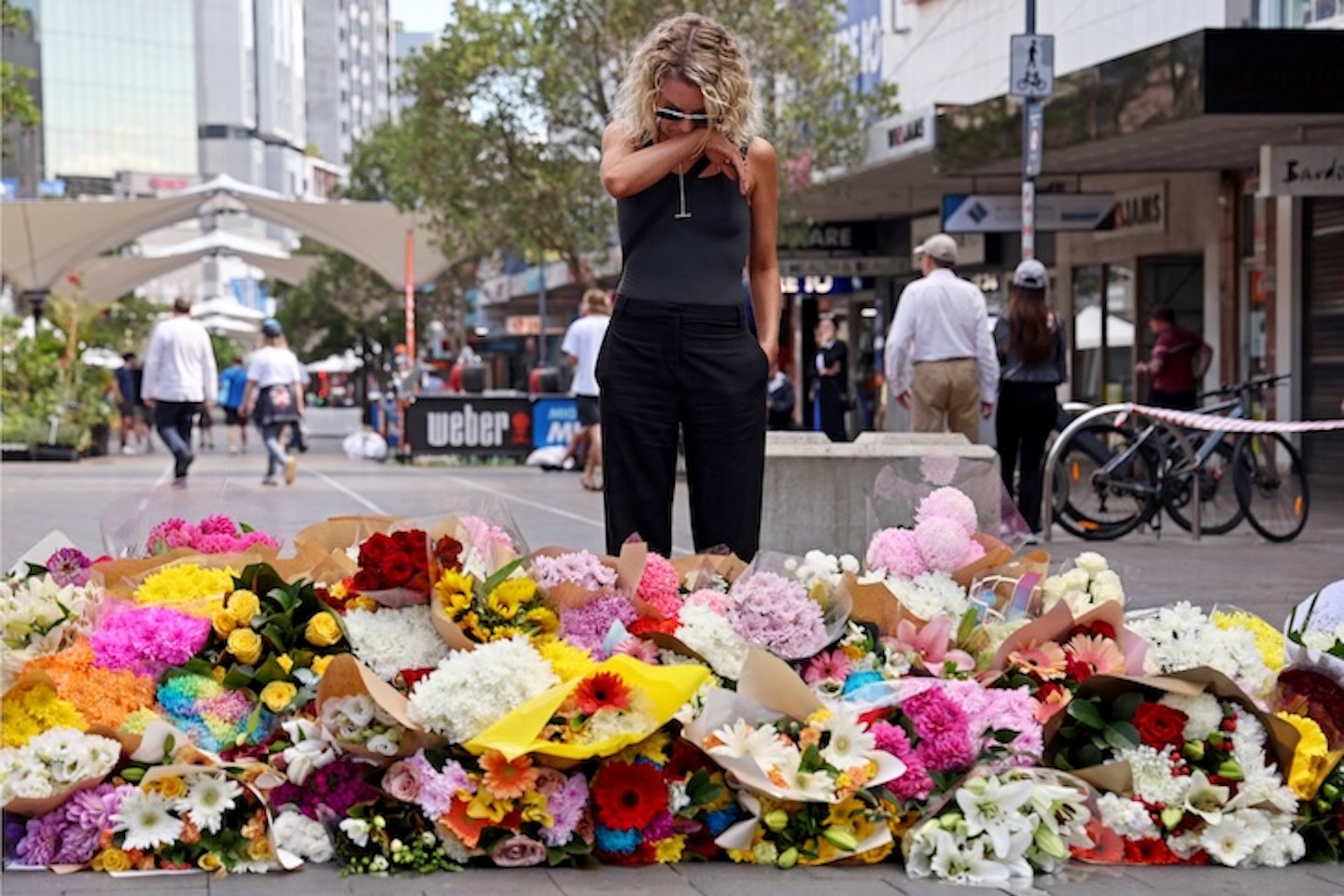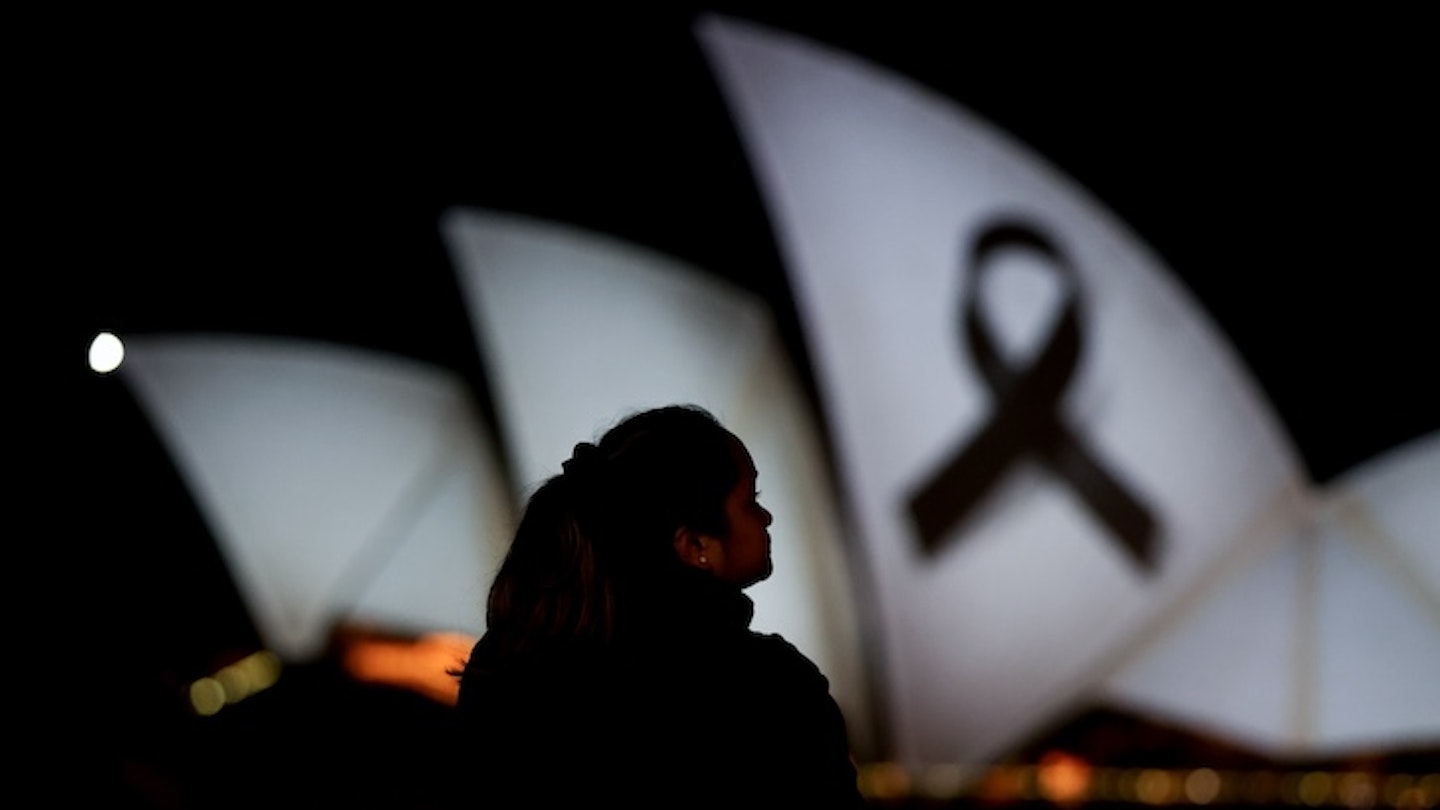It has happened again. A man has committed a horrific mass murder in a public place, this time at a shopping centre in Sydney, Australia. Six people are dead, five of them women. Twelve people are injured, 10 of them women and girls. Very quickly, on the day the attack took place, police and politicians confirmed to the media that this was not 'an act of terror' and police believed there was 'no ideological motivation'.
Yet New South Wales police commissioner Karen Webb also told the media: 'It's obvious to me, it's obvious to detectives... that the offender focused on women and avoided the men.'
What this clearly demonstrates is that even when a mass murderer deliberately targets women and girls, it is not considered an act of terrorism by authorities. Extreme misogyny is not considered an ideological motivation.

This has all happened before. Repeatedly. When Elliot Rodger murdered six people and injured 14 others in Santa Barbara, California, in 2014, he left videos and a manifesto explicitly stating that the motive behind the killings was hatred of women. 'I cannot kill every single female on earth,' he wrote, 'but I can deliver a devastating blow that will shake all of them to the core of their wicked hearts.' But headlines failed to mention misogyny at all and described Rodger as a 'disturbed' man. A New York Times article ran an angelic sepia-tinted photograph of Rodger in the fifth grade, describing how he was bullied at school and quoting teachers who called him 'very innocent, very soft-spoken'.
When 25-year old Alek Minassian drove a speeding rental van through a city centre district of Toronto in 2018, killing eight women and two men and injuring 16 others, he told police he had been radicalised online and was acting explicitly in the name of incel ideology. Like Rodger, Minassian described his attack as 'the day of retribution'. 'I was angry that [women] would give their love and affection to obnoxious brutes,' he said. Yet media reports quoted authorities thus: 'The driver’s actions, they said, appeared intentional, but did not seem to have been an act of terrorism.' 'The city is safe.' said the Toronto police chief.
In the UK, in 2021, Jake Davison carried out the first mass-shooting the country had seen in a decade, killing five people and injuring two others in Plymouth, Devon. Davison was known to have been active in and heavily influenced by incel forums, and had uploaded misogynistic rants about women online. Days before the shooting, he had made online searches for incel serial killers. His mother had previously reported him to the Prevent anti-terror scheme. Yet within a single day of the murders, police said they did not consider it a terrorist attack and that officers were ;not looking at any far-right links at the moment'. Misogynistic extremism was not even mentioned.
Clearly, any atrocity of this magnitude will rightly result in a lengthy and complex police investigation. There may be multiple factors at play. I am not suggesting that any act of violence propagated by a man involved in misogynistic online communities should automatically be designated as terrorism. But it should absolutely be considered as a possibility. And where such acts meet the threshold for international definitions of terrorism (designed to spread fear amongst a specific demographic group, for example, or designed to advance a specific ideology), that is exactly how they should then be described.
But the immediacy with which police and politicians often completely dismiss even the possibility of any link to extremism and the routine lack of any mention of it in media reports shows that, as a society, we simply do not consider mass murders of women, potentially motivated by extreme misogyny, to be a possible form of terrorism.
This is a result of two societal blind spots. First, we are so desensitised to misogyny, and it is so common across our culture, that we struggle to recognise it as ‘extreme.’ Second, we struggle to think of white men as terrorists. Hence, in almost every case where a white man commits a mass murder, mental illness is usually the most prominent issue raised by police and media. Islamist terrorists, in stark comparison, are very rarely referred to as 'mentally ill’, even where mental illness is present.
This is not to say that mental illness isn’t a potential factor in some of these cases, (as indeed it may have been in the case in Sydney), or that we should ignore urgent calls to increase funding and support for those who experience it. But to suggest that it is the sole motivator is to stigmatise and harm the vast majority of people diagnosed with mental illness who do not commit acts of violence (and are indeed more likely to be victims of violence), and to ignore the vital role of radicalisation and extremism. 98% of mass shooters are men. Yet how often do we talk about gender and toxic masculinity as significant factors in motivating mass murder?
Because we don’t consider misogynistic extremism a dangerous ideology, its proponents are free to idolise and praise those who carry out these massacres. There are entire message boards and YouTube channels devoted to deification of Elliot Rodger, the 'Supreme Gentleman'. After the Toronto van attack, on one incel forum, users wrote: 'Alek Minassian. Spread that name, speak of his sacrifice for our cause, worship him'.
And already, just days after the Sydney attack, men online are praising the killer for 'going ER', congratulating him for murdering 'foids' (female humanoids) and promising this is 'just the beginning'.
Unless we start to recognise misogynistic extremism for what it really is, correctly identify misogynistic terrorism and tackle the mass radicalisation of men and boys into extreme hatred of women online, they are likely to be right.
